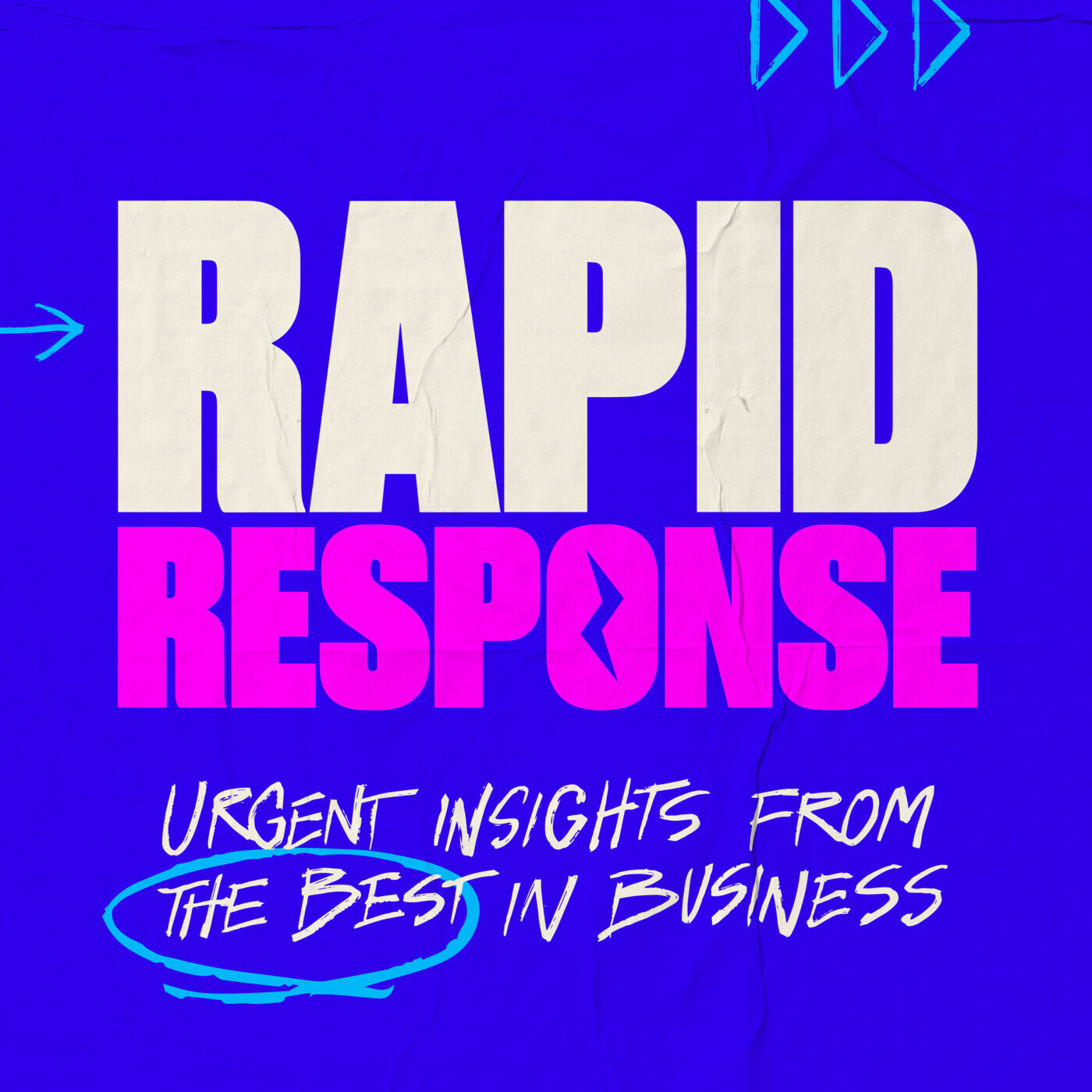What's Going On with Business and Politics?
The Main Idea in a Nutshell
- Right now is a super confusing and scary time to be a business leader because of huge, unpredictable changes in politics and technology like AI.
The Key Takeaways
- A Scary Time to Lead: Business leaders are more scared and uncertain than they've been since the 2008 financial crisis, mostly because of crazy politics and the rise of AI.
- CEOs Are Getting Quiet: A few years ago, CEOs were encouraged to speak out on social issues, but after companies like Bud Light faced huge backlash, many are now too afraid to say anything that could get them in trouble.
- AI is a Big Deal: Artificial Intelligence is set to change everything, but the expert in the podcast says most CEOs don't actually understand it well enough to lead their companies through this massive shift.
- America vs. China: The speaker thinks many Americans don't get how modern and dynamic China is, and that the current political drama in the U.S. might actually be helping China become more powerful.
- Fun Facts & Key Numbers:
- Fact: The speaker, Audie Ignatius, was the top editor at the famous Harvard Business Review for 16 years.
- Fact: A "fear index" that tracks how worried people are has been "off the charts," at levels only seen during the peak of COVID and the 2008 financial collapse.
Important Quotes, Explained
Quote: "> I feel like the United States sort of overnight became China, right? ...suddenly, you know, we can't criticize the government, right? Because there will be a tremendous backlash."
- What it Means: He's saying that American business leaders are starting to feel like they can't speak out against the government without being punished. This is shocking because that's how things are in a country like China, which doesn't have free speech.
- Why it Matters: This is a huge deal because it suggests that the fear of political attack is so strong in the U.S. right now that it's starting to silence people in power, which is not how a democracy is supposed to work.
Quote: "> ...their principles and then their preferences, right? And if you're not going to pay a little cost for something, then it's really just a preference and don't don't turn it into a principle if it if it's not something, you know, you're willing to have it cost you a little bit."
- What it Means: A true principle is a belief you're willing to sacrifice for. If you back down as soon as it costs you something (like money or popularity), then it wasn't a real principle—it was just something you liked when it was easy.
- Why it Matters: This challenges companies and leaders to be honest. Are their stated "values" just for show, or do they actually stand for them, even when it's hard?
The Main Arguments (The 'Why')
- First, the author argues that business leaders are caught between two giant, scary forces: rapidly changing AI technology and completely unpredictable politics.
- Next, he gives evidence that CEOs are now too scared to speak on social or political topics because they've seen other big companies get attacked and lose money for doing so.
- Finally, he points out that this climate of fear is a serious problem. When powerful people are afraid to criticize the government, it starts to look less like a democracy and more like an authoritarian country.
Questions to Make You Think
- Q: Why are CEOs so afraid to speak their minds now?
A: The text says they saw what happened to companies like Target and Bud Light. When those companies took a stand on social issues, they faced massive public anger and political attacks that cost them a lot of money. Now, other leaders are scared the same thing will happen to them.
Q: What does the speaker mean by "Davos Man" vs. "Maralago Man"?
A: It's a way to describe two different types of CEOs. "Davos Man" is the type of leader who believes companies should care about social issues, the environment, and their employees, not just profits. "Maralago Man" is the newer type of leader who pushes back on that, thinks companies should stay out of social issues, and focuses mainly on the bottom line.
Q: Does the speaker think AI is good or bad?
- A: He's mostly an "advocate," meaning he's more positive than negative. He is in "awe" of its power and thinks we should all start using it. But he is also worried that it could lead to job losses and is angry that AI companies used his magazine's articles to train their AI without permission.
Why This Matters & What's Next
- Why You Should Care: What these powerful CEOs decide to do affects almost everything: the stuff you buy, the jobs that will be available when you graduate, and even what we're allowed to talk about in public. This conversation gives you a peek behind the curtain at the powerful forces shaping our world.
- Learn More: To understand the AI part of this better, check out the YouTube channel Vox. They have excellent, easy-to-understand videos that explain what generative AI is and how it's changing our lives.

